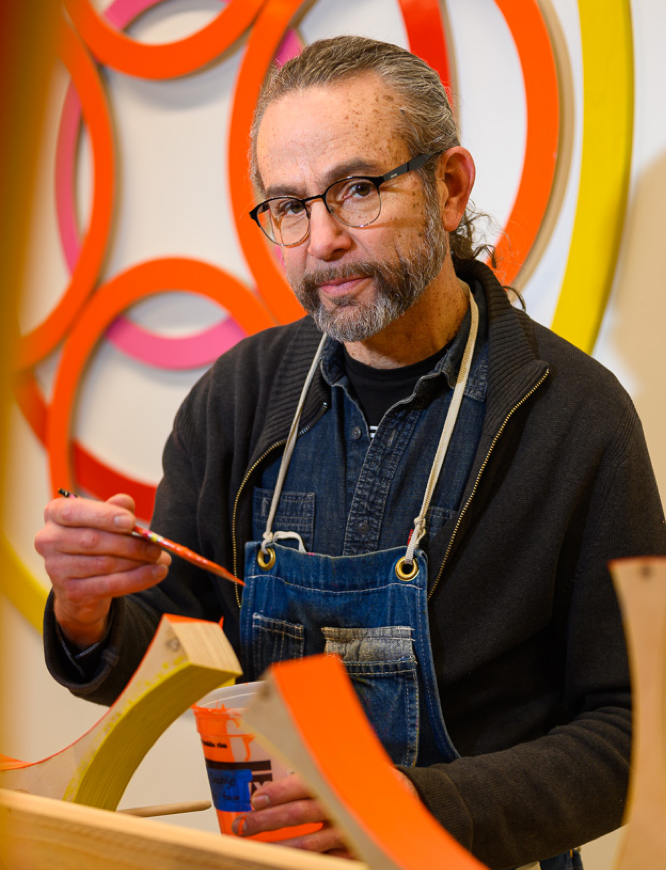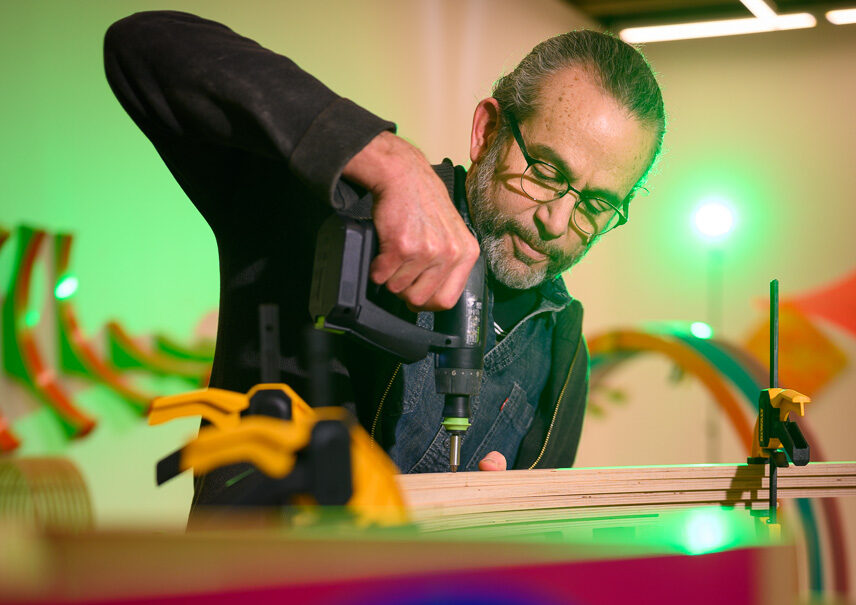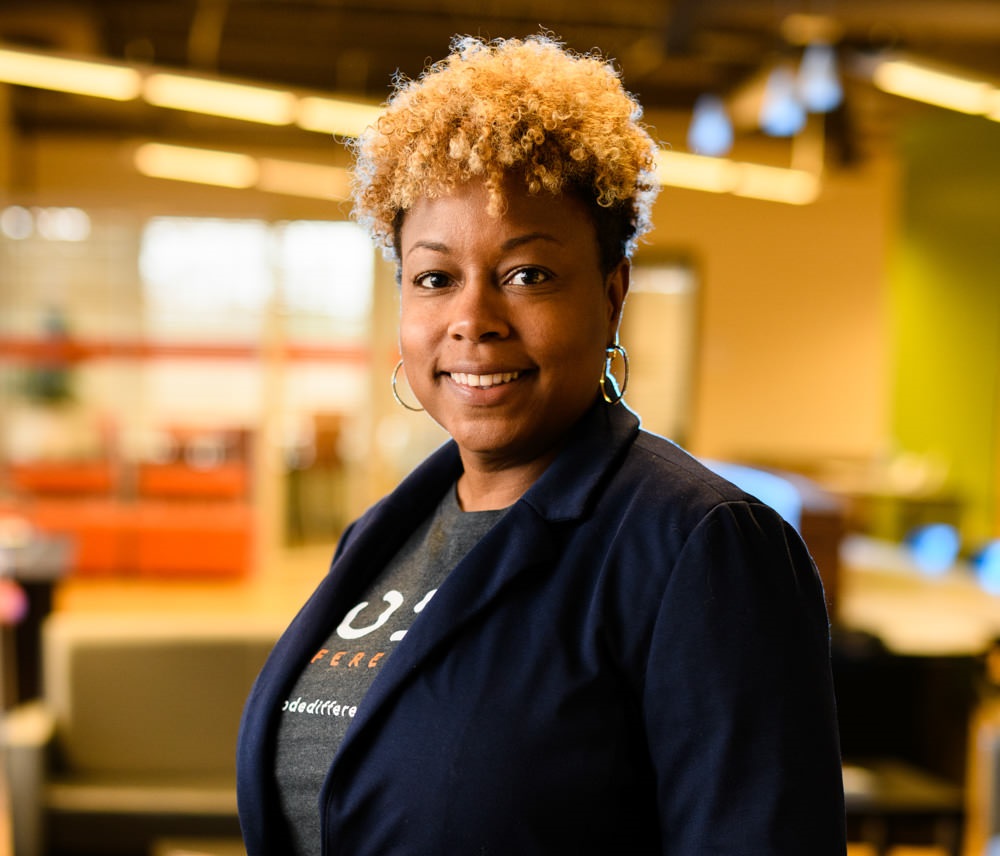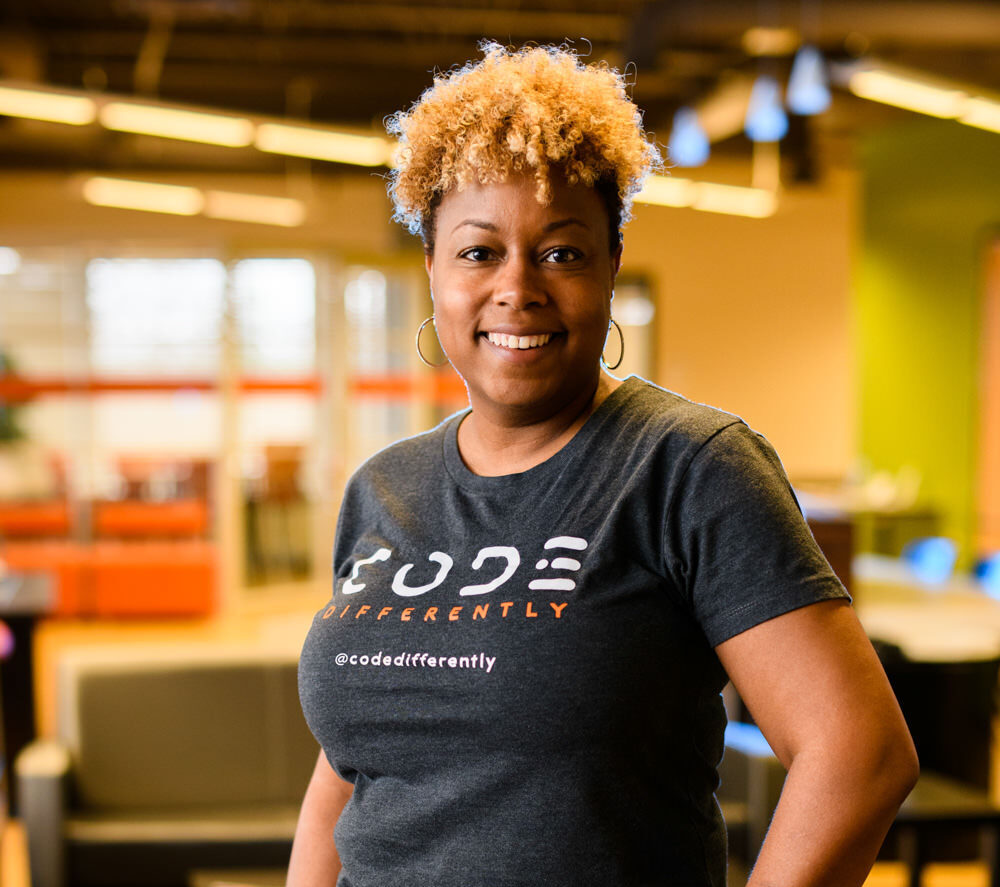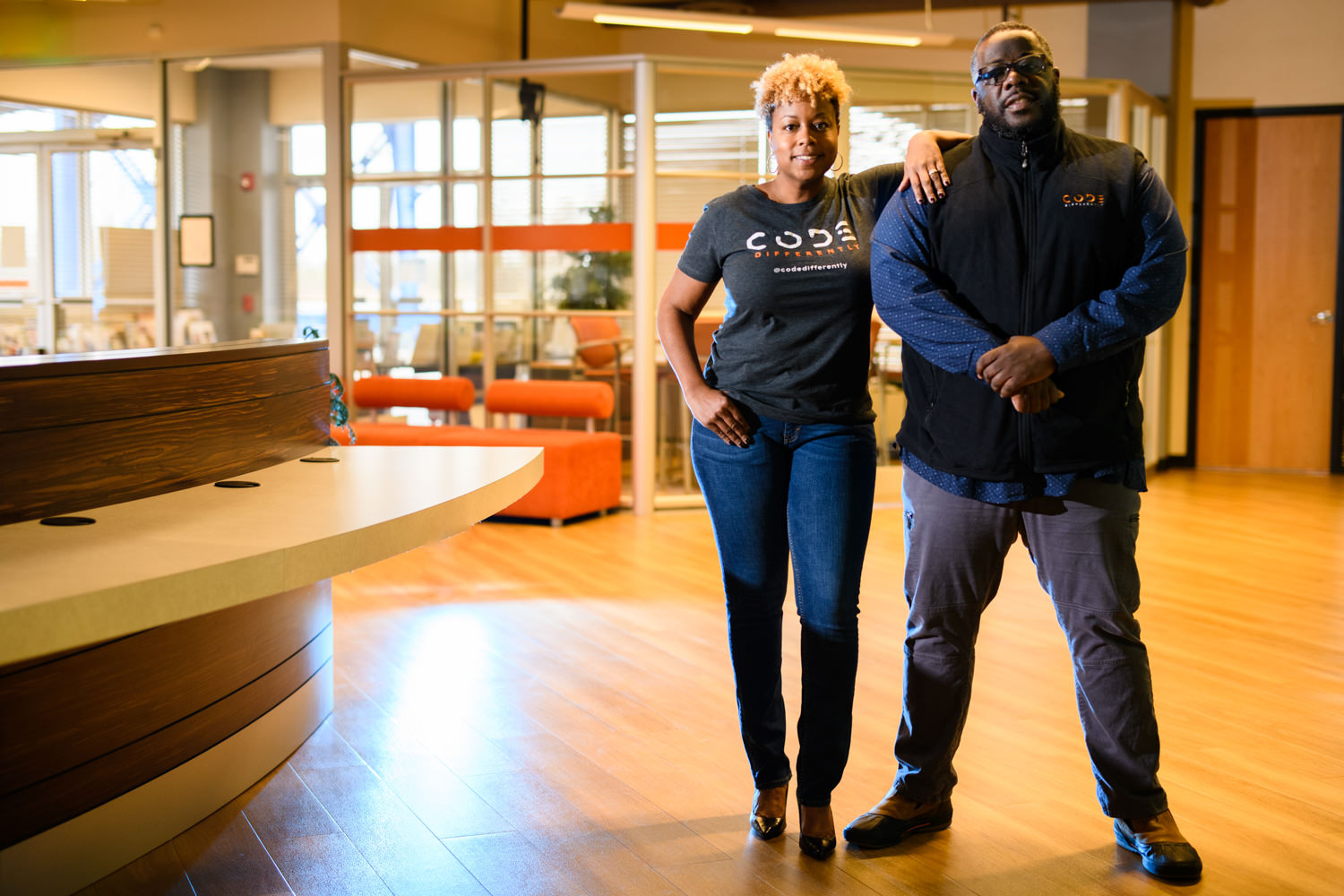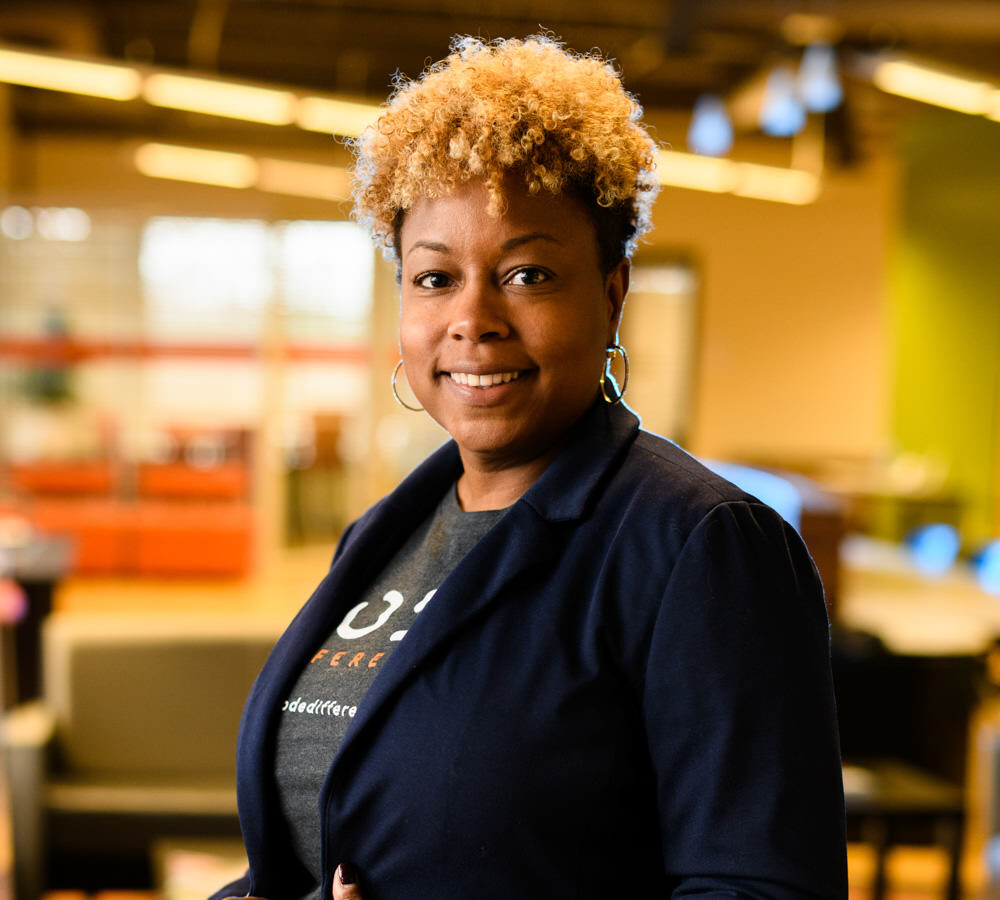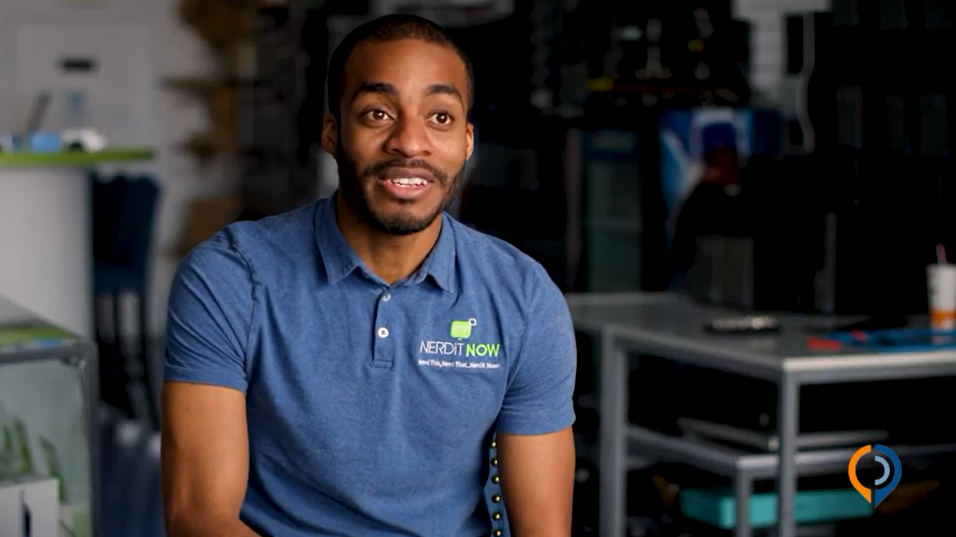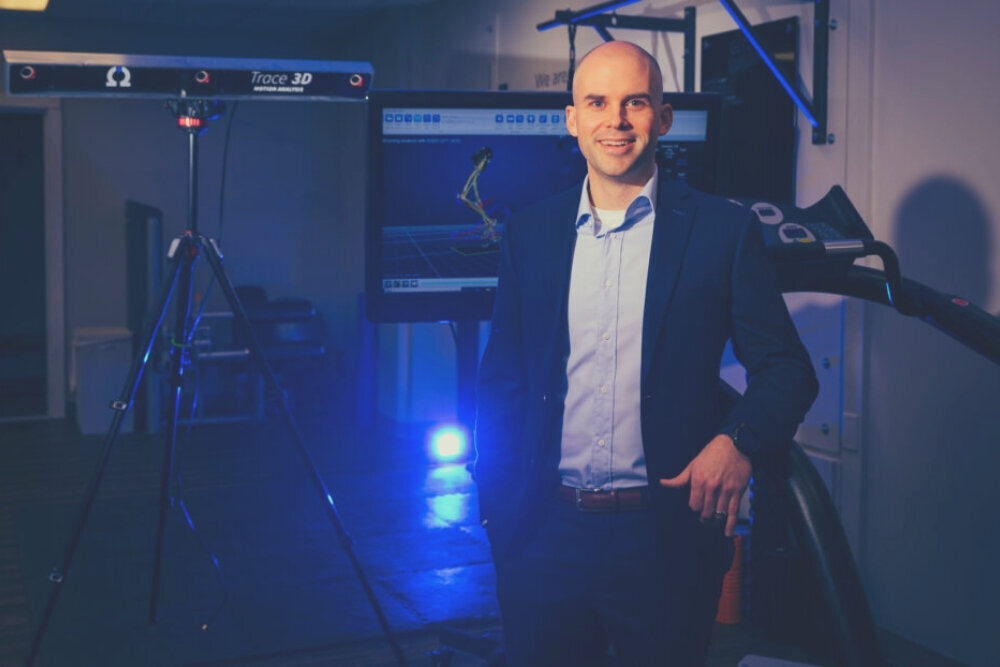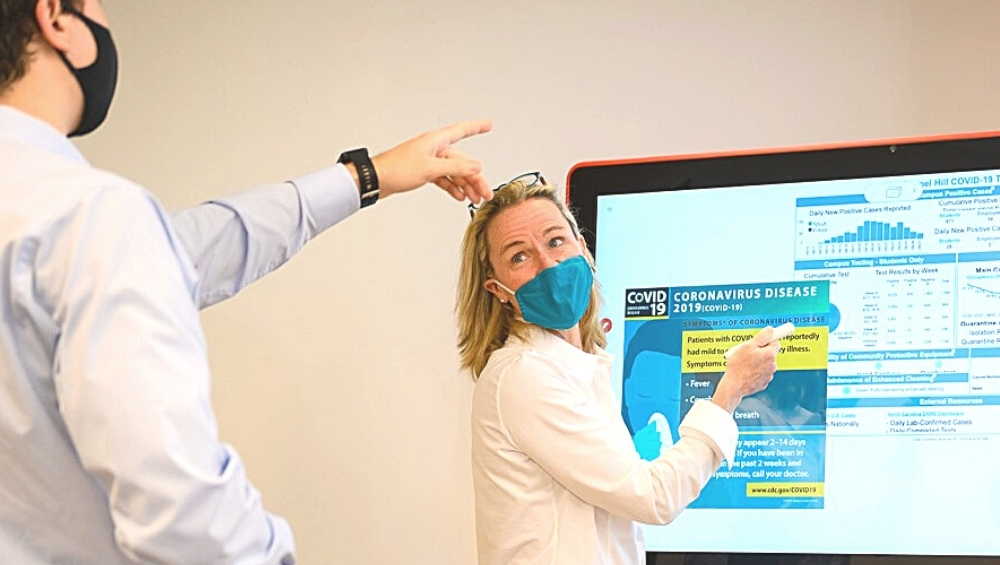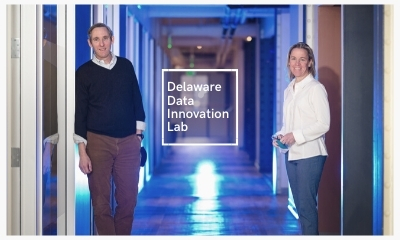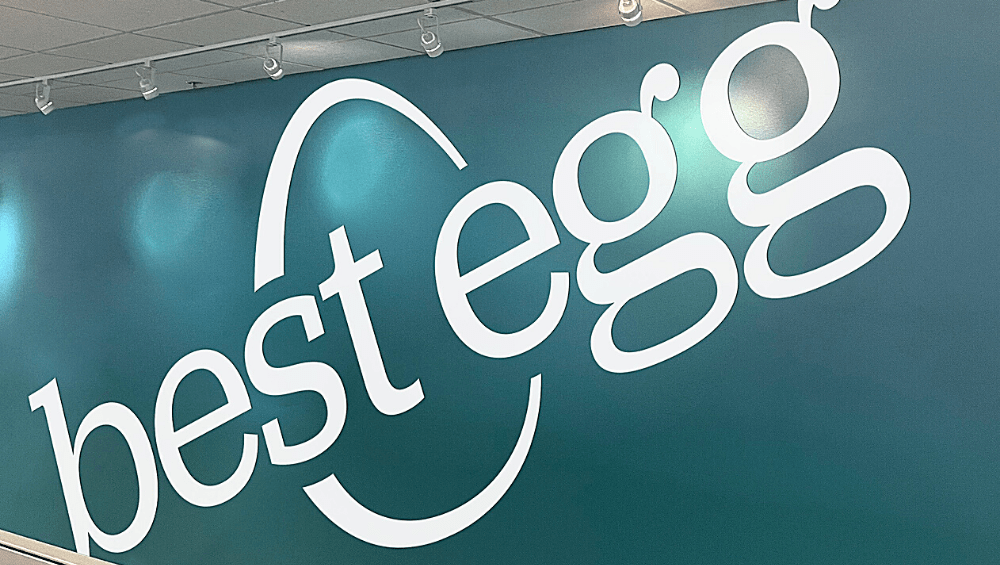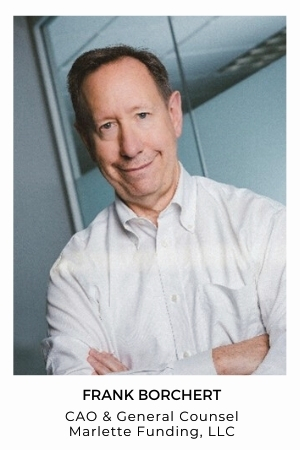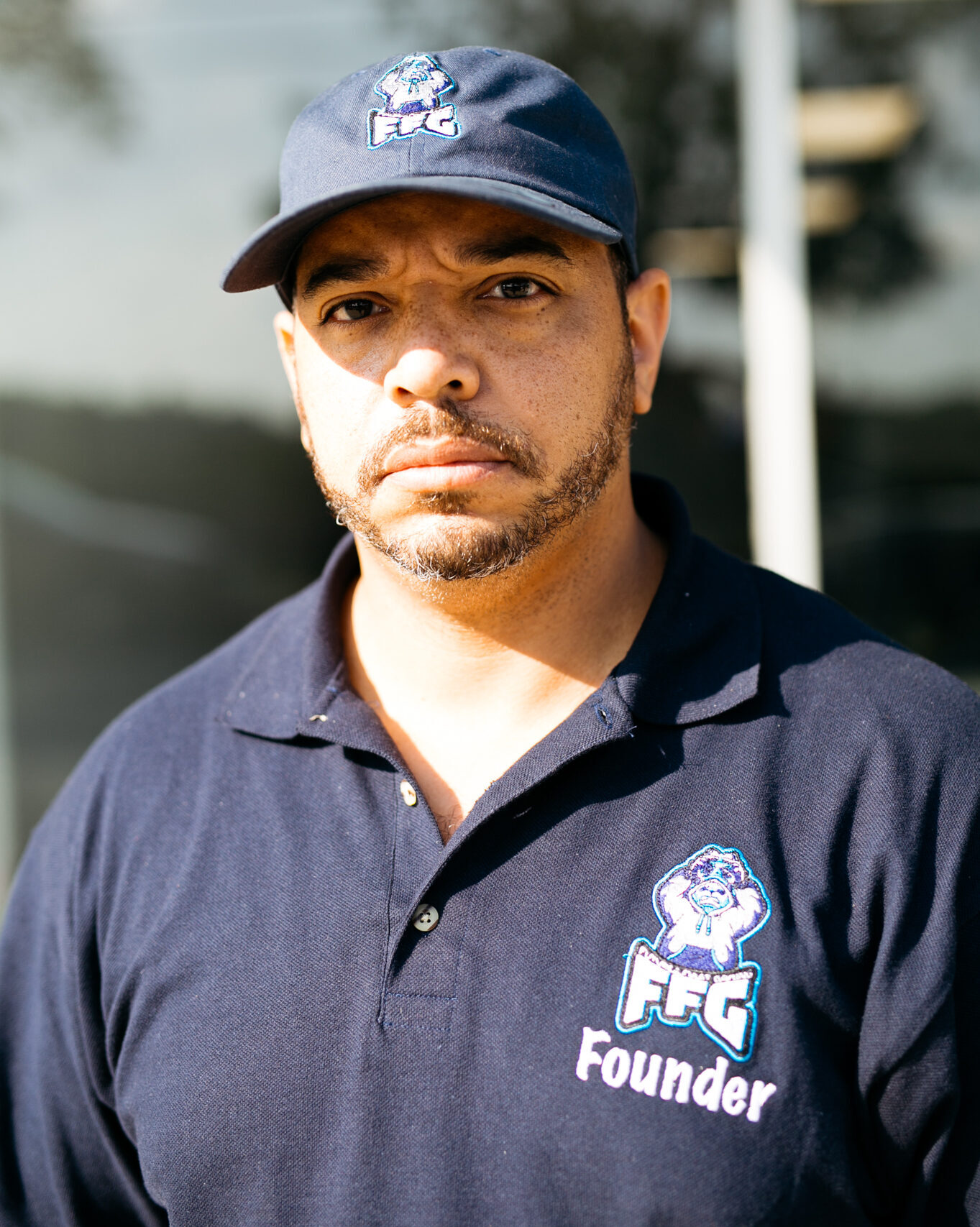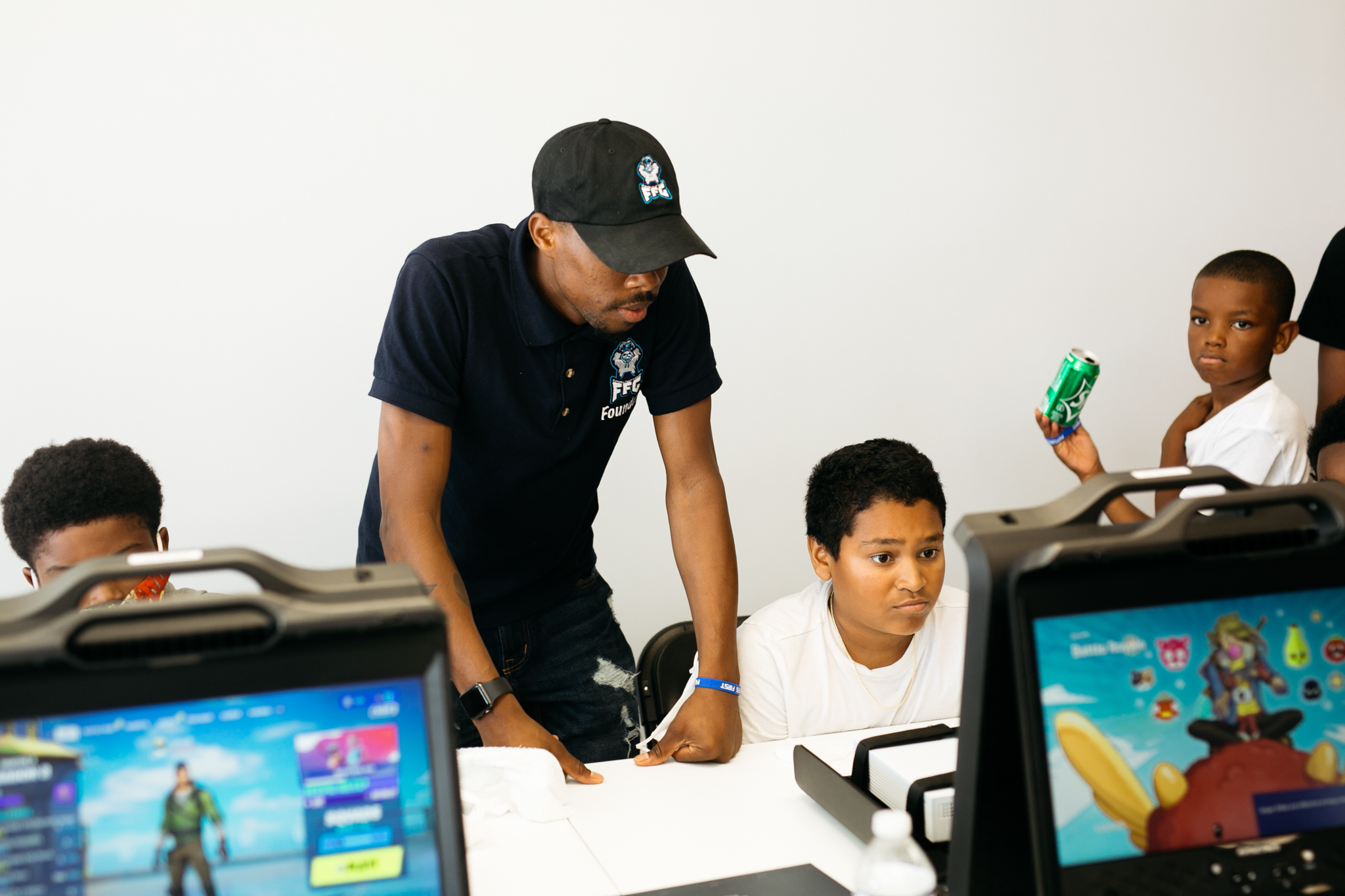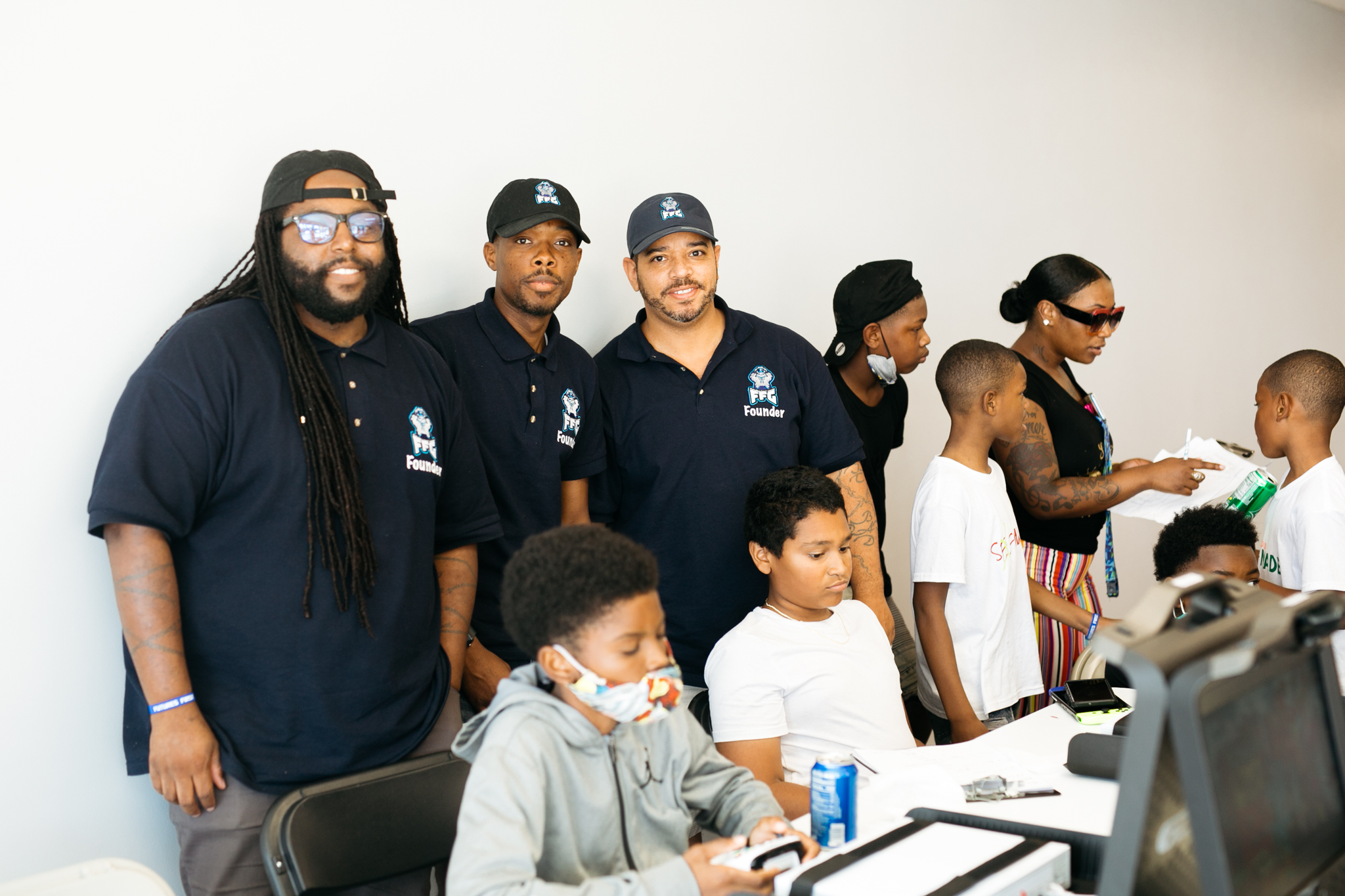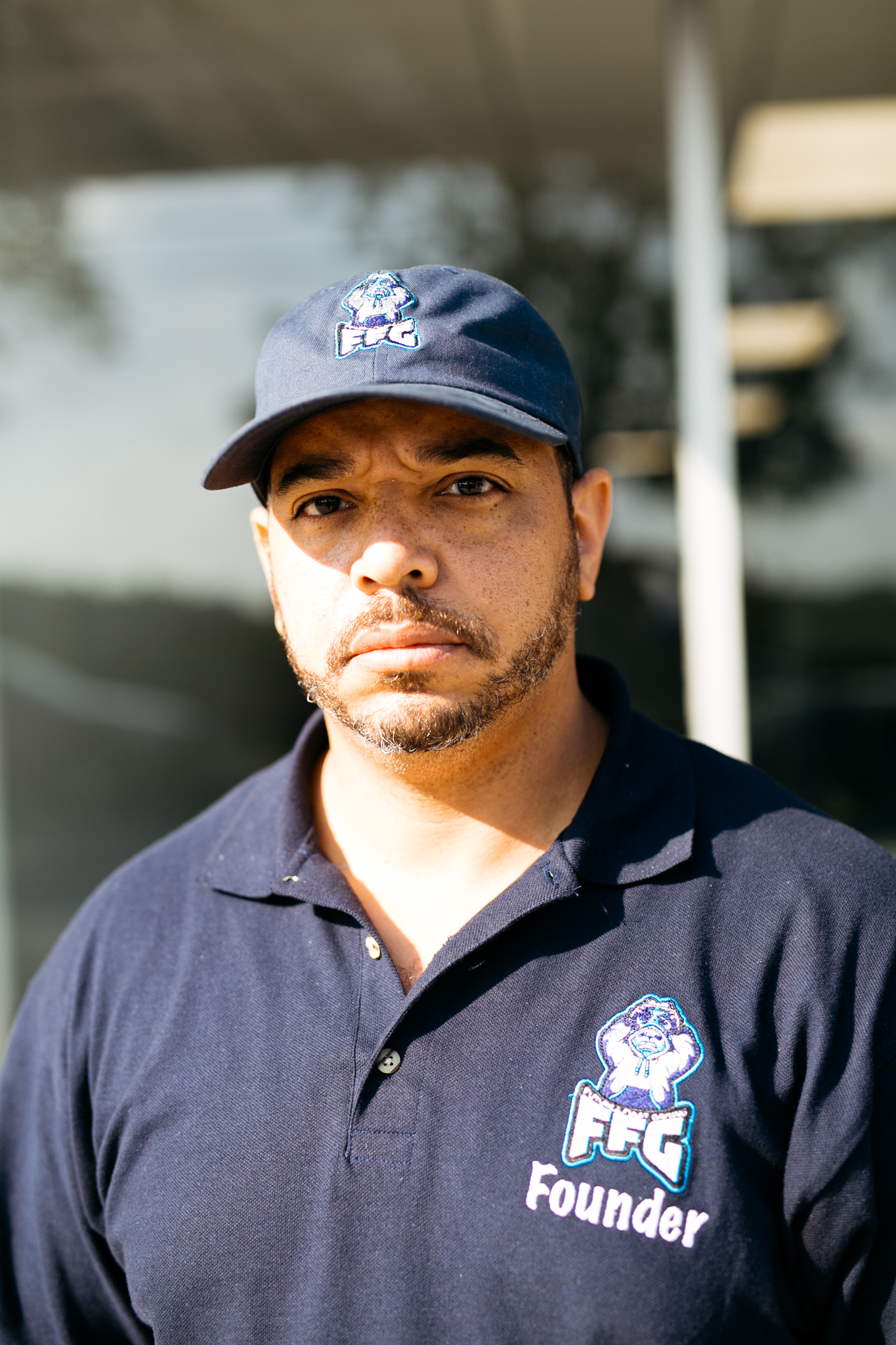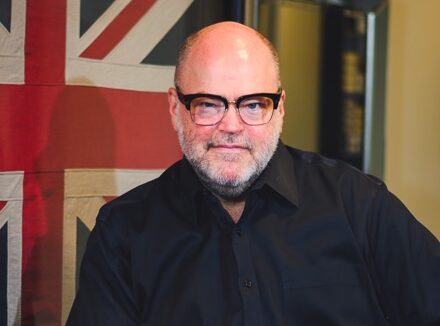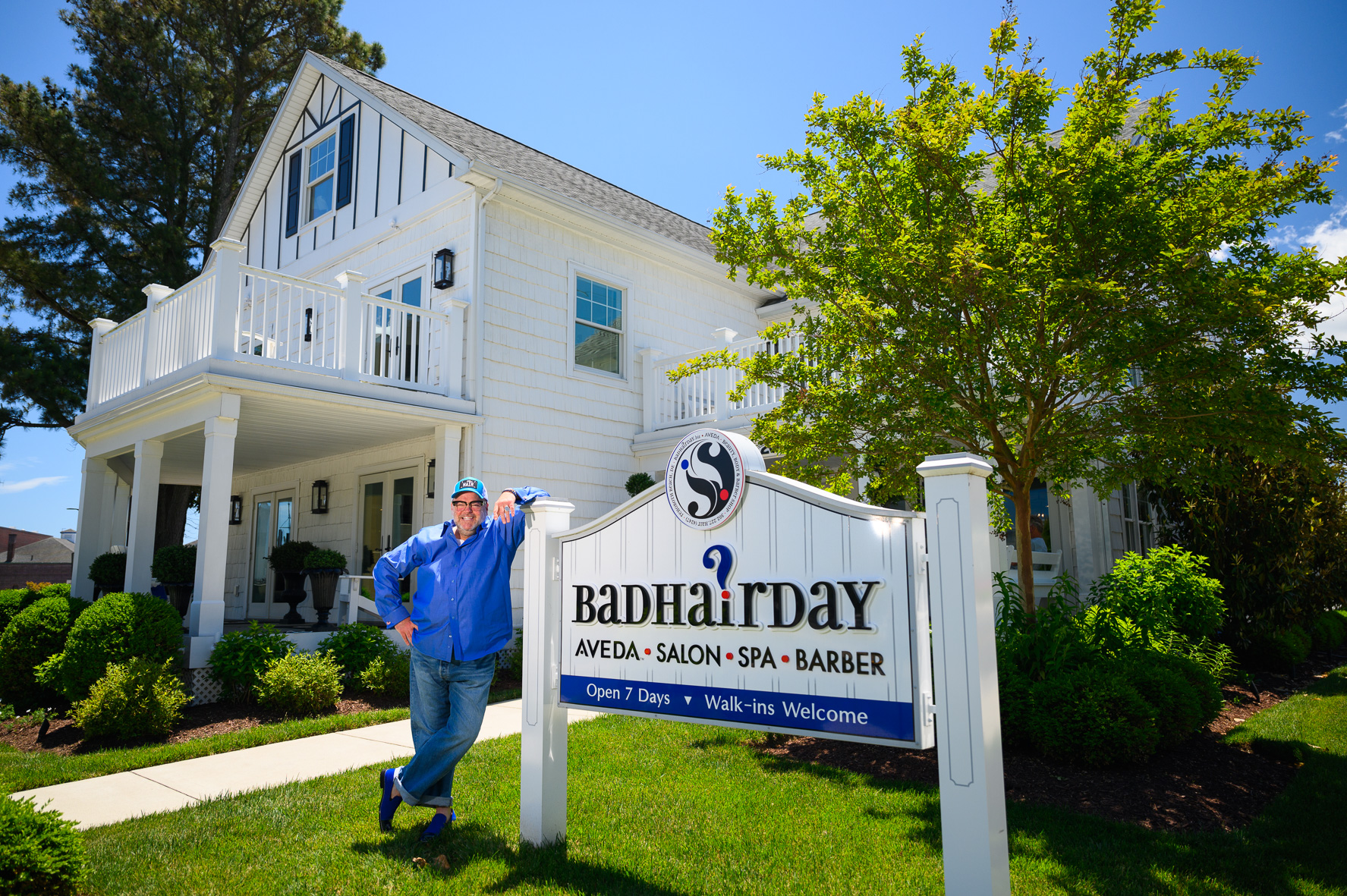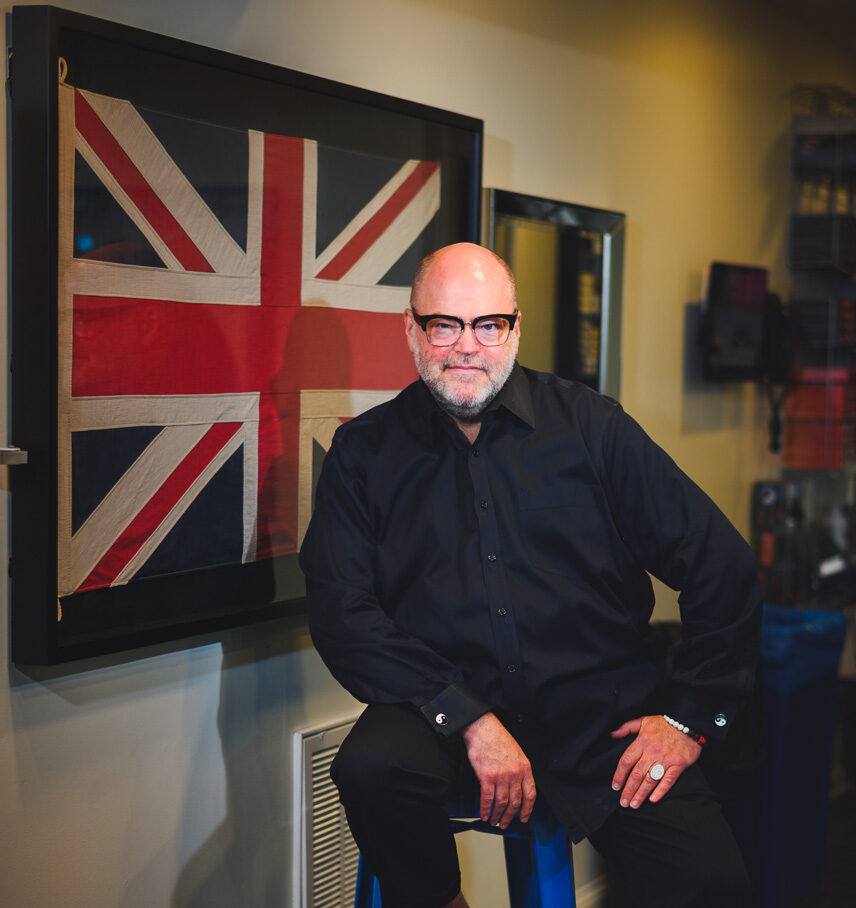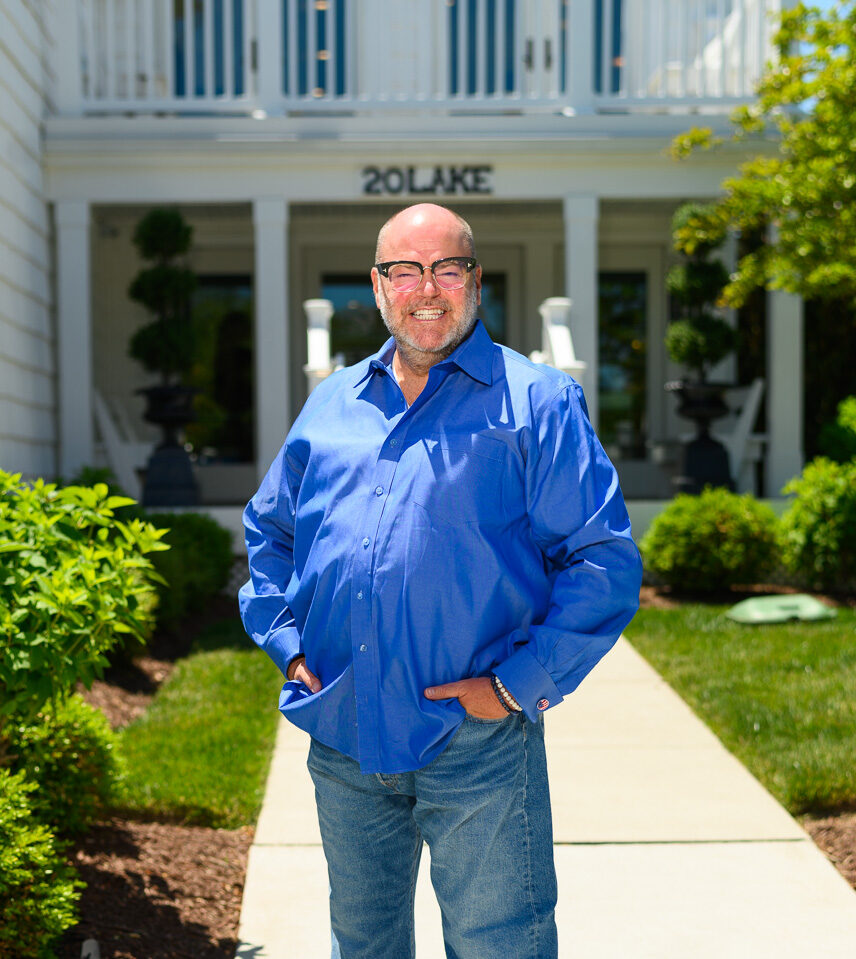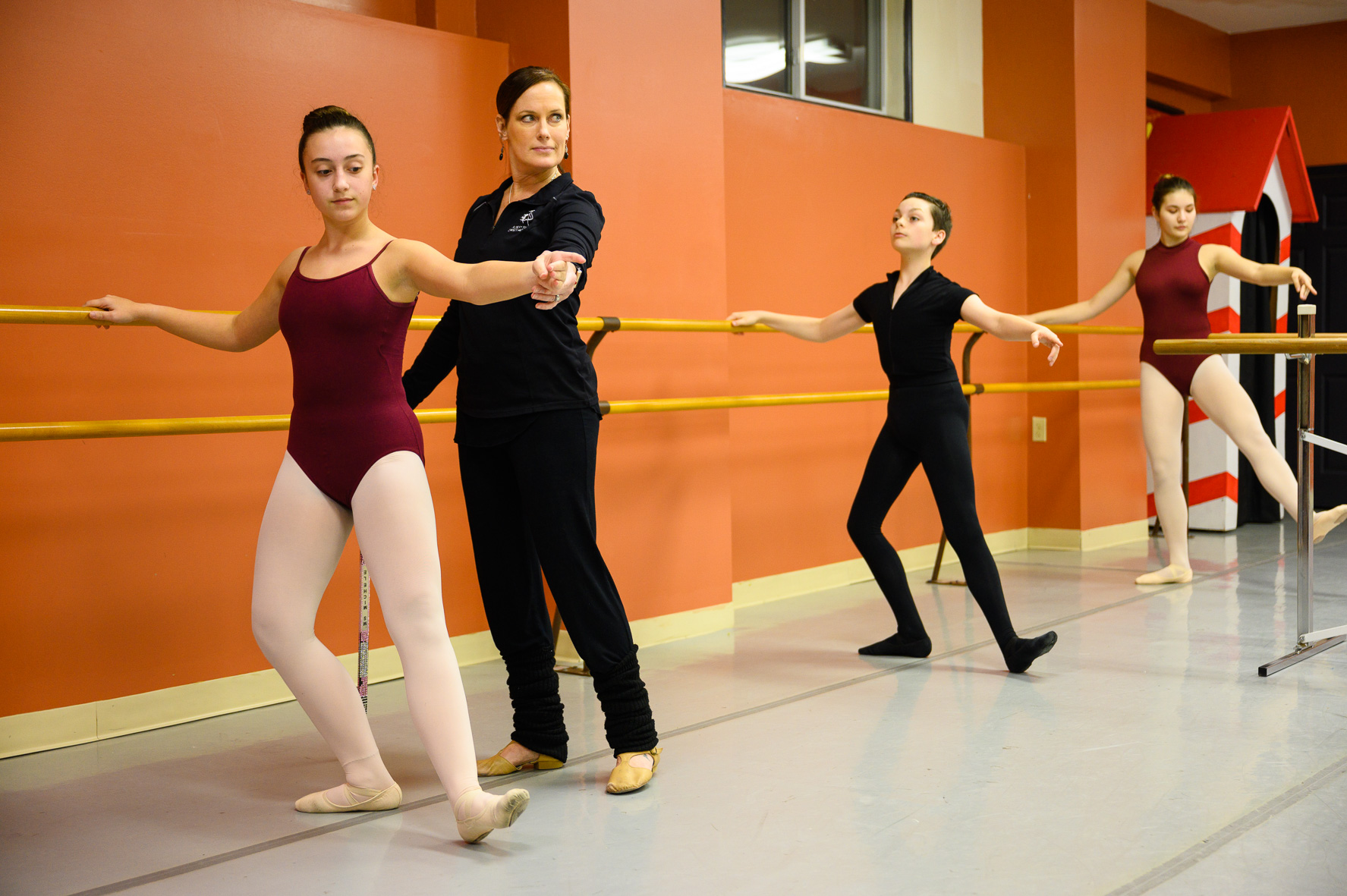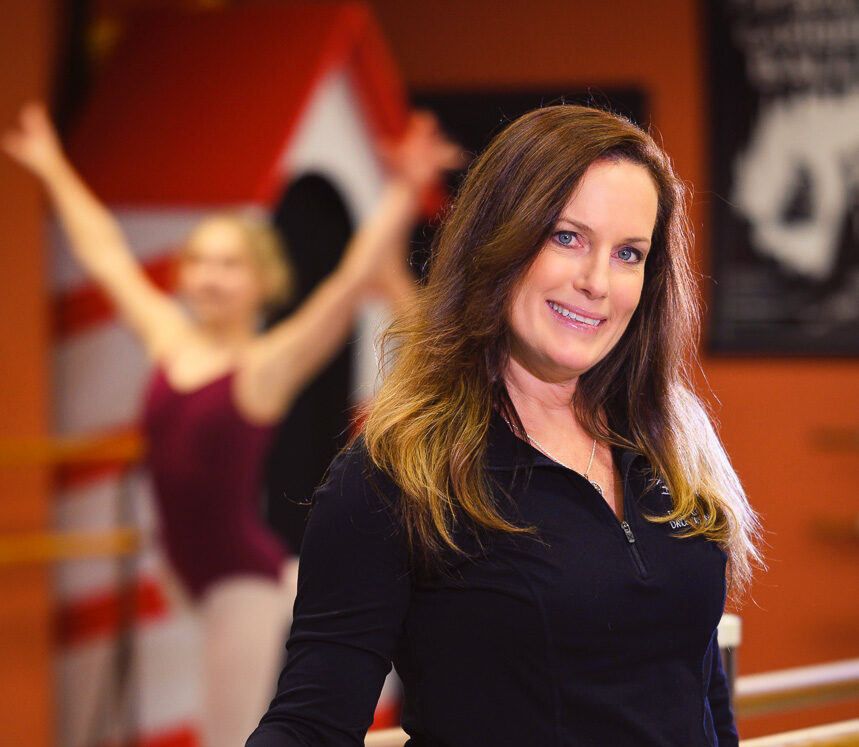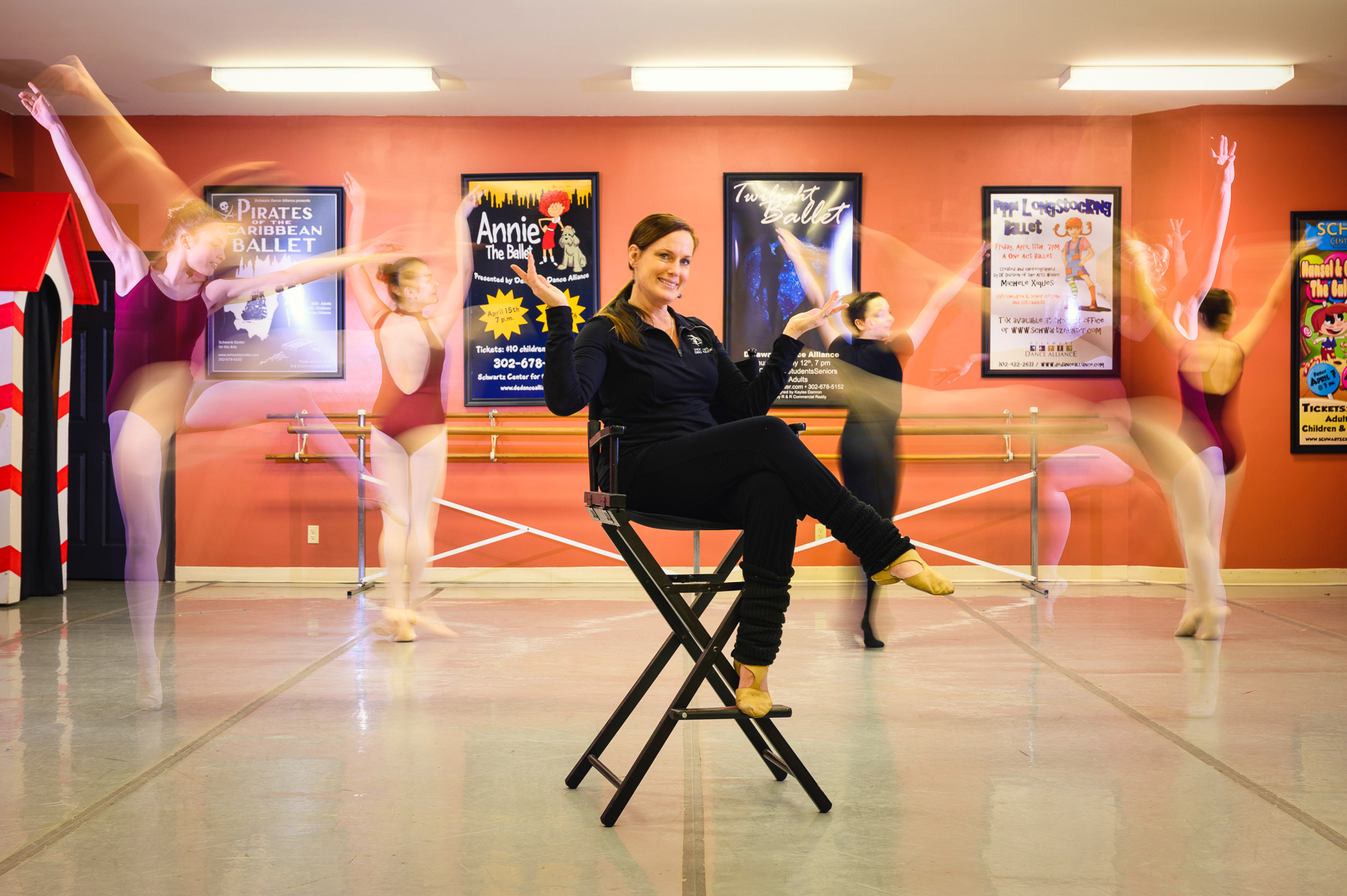Dennis Beach
Visual Artist
Dennis Beach loves Delaware
Dennis Beach
Dennis Beach is a man who balances intention with flow.
A respected visual artist, usually combining sculpture and painting — Beach is influenced by simplicity and essence. “My work involves processes that transform materials, quite often plywood and paint, into objects that combine the beauty and order that I mine from our natural world.”
Even if you don’t may not recognize his name, you’ve likely noticed some of Beach’s work. He has a permanent piece in the Delaware Art Museum called “Drift #19,” a rippling yellow and orange wooden piece that hangs just outside the gift shop. The new Comcast building in Philadelphia is also a permanent home for Beach’s “Curve #10,” a substantial series of wooden parentheses that evokes a tropical forest.
Beach was born in the Eastern Shore of Maryland, but moved a lot, with his father working for the government when he was a kid. It’s not hard to see the influence of his time in the Eastern Shore in the wavelike twists often found in his work. Beach later moved to Baltimore for his BFA at the Maryland Institute College of Art and created a studio there. “I didn’t realize until I was about 30 that I was capable of doing things artistically and wanted to do things artistically,” Beach says. “I rented a two-car garage where I set up a studio. I think that’s the key for a large number of artists, having a space of their own to work in,” Beach said.
It was at an art show in Baltimore in 2002 where Beach met Delaware artist Toni Vandegrift. The two hit it off and Beach ended up moving to Delaware. “Sometimes you just have to listen to the signs. I kept my Baltimore job for the first sixth months, just taking Amtrak back and forth. I was doing metal and woodworking in a fabrication shop in Baltimore called Gutierrez Studios, which is still there.” Beach considers his time there to have been an integral part of his education.
The move to Delaware created a clear path forward for Beach. After arriving, he found studio space at dramatically more affordable rates than the larger cities. He received his MFA from the University of Delaware in 2005, and quickly thereafter began to craft a style that would become the seed for the work he is doing today.
Early on, Beach was influenced by the work of Anna Truitt, a minimalist artist who combined wood-working with painting in a very elemental way. “My early sculptures were clearly influenced by Anna. She also lived on the Eastern Shore of Maryland for some time. Originally I was drawn to the artwork, and then I realized there was a connection. Sometimes I think that maybe everything I do is an Ann Truitt sculpture or some variation.”
In developing his own organic and balanced style, Beach was intentional. “If you keep working, and are true to yourself, ‘you’ will come out.” By building upon each piece and questioning how it could be done better, he has refined his style into something that uniquely combines beauty and order. “I am often accused of using a lot of math, but I don’t. The repetition makes it look more formulaic. A lot of my work is just a series of circles. It’s not really a lot of math.”
Recently Beach has been working on some projects out of NextFab (a popular maker’s space) in Wilmington, using techniques he learned taking an Adobe Illustrator course at Delaware College of Art and Design.
The balance of running a studio and working on multiple projects at once had its challenges. Beach finds that sometimes the work dictates itself as it evolves and shifts as it’s being created. He tries to create a daily routine for each day, “Ideas often come to me in the shower. I am not a morning person so I typically get into the studio around 11 a.m. and then work until nine or so. But nothing comes with directions.”
Beach has expanded his Newport-based studio twice since taking it over. “I have a number of assistants who help with what we do here. We call this artwork but the stress can often be on the ‘work’ part of that. There is lots of sanding, shaping and cutting. There are a lot of bases and shapes that can often require having to make 120 [versions] of something. That is where having assistants is very helpful.”
Music has always been an important influence and can always be heard in his studio. For fun, Beach likes to enjoy live concerts in Wilmington, usually at the Queen, 1984, or Oddity Bar.
“Music is also an influence, it’s important to all humans. Live music in particular. What I am striving for in my artwork is a feeling, not just a visual appearance. It was something I would get at a live concert — that collection of sound, lights, emotion affecting you in different ways. I strive to create visual excitement that can be calm or kinetic. But obviously less immediate.”
Recently Beach has been using techniques he learned taking an Adobe Illustrator course at Delaware College of Art and Design. “These techniques are a fairly recent addition for me, specifically the laser and the shopbot to help create my art. But it has really helped my process.”
Looking forward, Beach hopes to attract new collectors and have even more permanent installations. He has more projects in his mind than time to complete them.
“I don’t see artist’s block happening to me in my lifetime. I will die with things that I want to do.”
